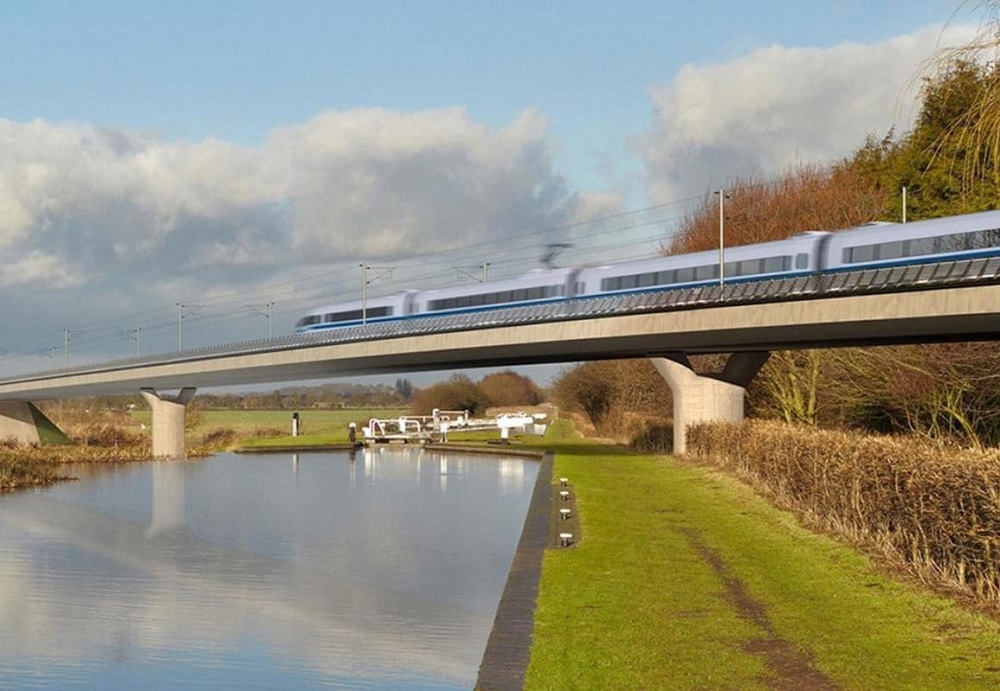Cost of controversial HS2 rail project balloons by another £1.7bn

The cost of the controversial HS2 rail project has ballooned by another £1.7bn over the past year, it has been reported.
This has been caused by the pandemic and social distancing measures, which has forced delays and reduced productivity on the building of the high-speed railway line, according to the Financial Times.
HS2, which currently has a £106 billion budget in total, was designated as an England and Wales project despite the fact that no part of the track is included in Wales.
This means the Welsh Government will receive less money to spend on transport “for decades” a report by researchers at Cardiff University’s Wales Governance Centre has said.
It says Wales is excluded from receiving the additional funding that will flow to Scotland and Northern Ireland over the lifespan of the project.
Sources close to the project told the FT that the costs associated with the first phase of the high-speed link between London and Birmingham have increased by as much as £800 million, which is on top of an £800 million increase previously announced by HS2 in October.
The cost of the Birmingham Interchange has also been whacked by a further £100 million increase to £370 million, before contractors have been appointed.
The UK Government’s Department for Transport said: “Our focus remains on controlling costs, to ensure this ambitious new railway delivers its wealth of benefits at value for money for the taxpayer.
“The response to Covid-19 remains ongoing and final assessments of its effect have not been made.”
‘Smaller share’
In its report the Wales Governance Centre said: “For the remainder of the HS2 project’s lifetime – likely to be several decades – the Welsh Government will now receive a much smaller share from any increase in the Department for Transport’s budget.
It was part of what it called “historic under-funding” that was “being baked into the system” in Wales.
The report also reveals that railway infrastructure investment in Wales would have been significantly higher if it had been devolved.
It find that under a fully devolved system, Wales could have received an extra £514m investment in its rail infrastructure between 2011-12 and 2019-20.
As well as perpetuating underinvestment in Wales’ rail infrastructure, the researchers warn the non-devolved system will also lead to a funding squeeze on the Welsh Government’s future budget.
These amounts can be compared to the cost of several major Welsh rail infrastructure projects that have been estimated by external sources, including:
- The Carmarthen to Aberystwyth line (£620-775 million)
- Electrification of the North Wales Coast mainline (£764 million)
- Electrification of the South Wales mainline between Cardiff and Swansea (£433 million)
Wales Fiscal Analysis researcher, Guto Ifan, commented: “When it comes to the Welsh railways, the evidence is clear that funding would have been substantially higher under a fully devolved system – to the tune of £500m since 2011, when spending data for Wales was first made available. That funding over the course of eight years would have enabled significant improvement projects to take place.
“Wales is also set to lose out on transport funding when the Treasury next sets multi-year budgets, due to technical changes in Barnett formula calculations. This is a double whammy for Wales, with the historic under-funding being baked in to the system.
“It is now clear that only full devolution of rail infrastructure – similar to Scotland – will address the underfunding of Welsh railways.”
Support our Nation today
For the price of a cup of coffee a month you can help us create an independent, not-for-profit, national news service for the people of Wales, by the people of Wales.






One of the biggest amongst many, many, rip offs perpetrated by Westminster against the Welsh people. Take heart brothers and sisters, our independent Wales beckons.